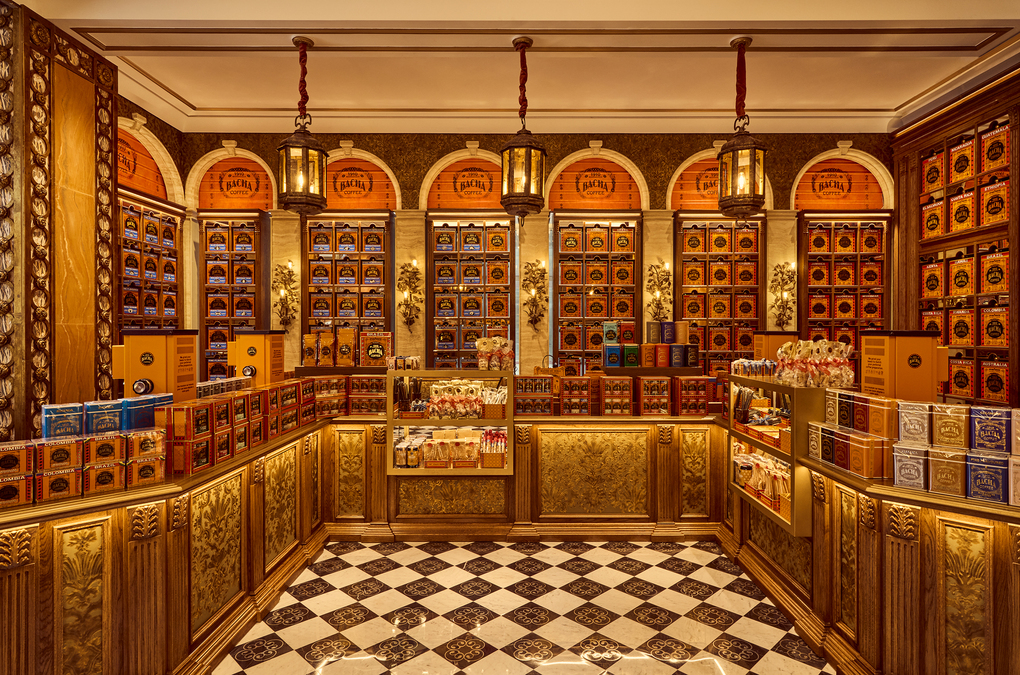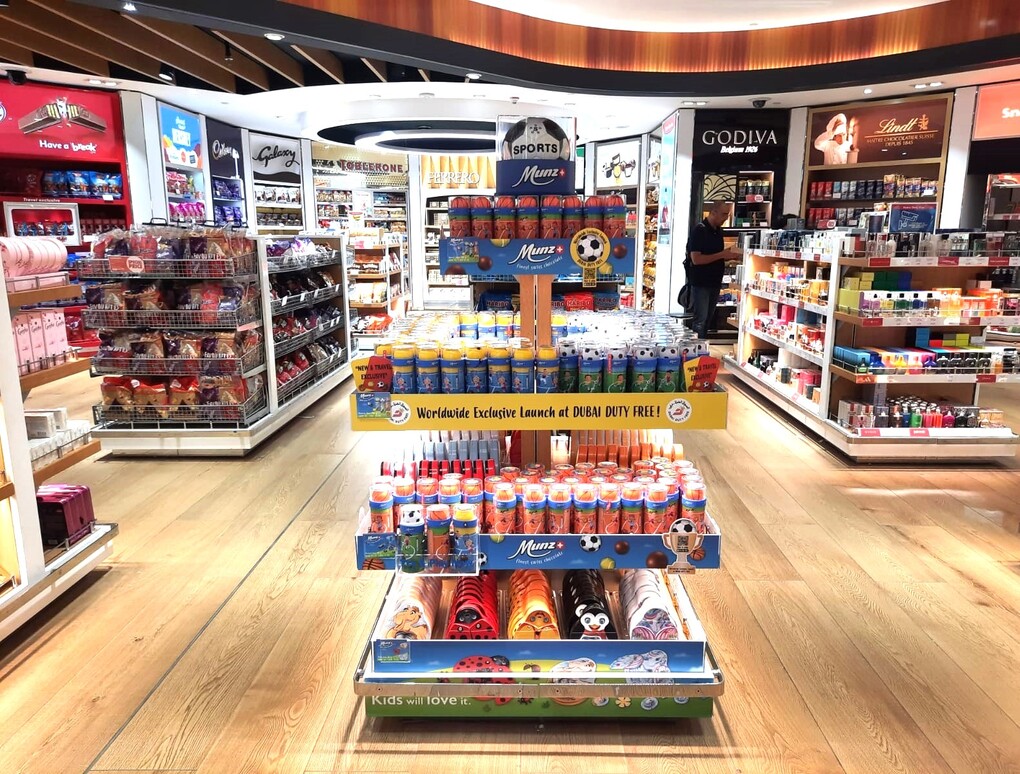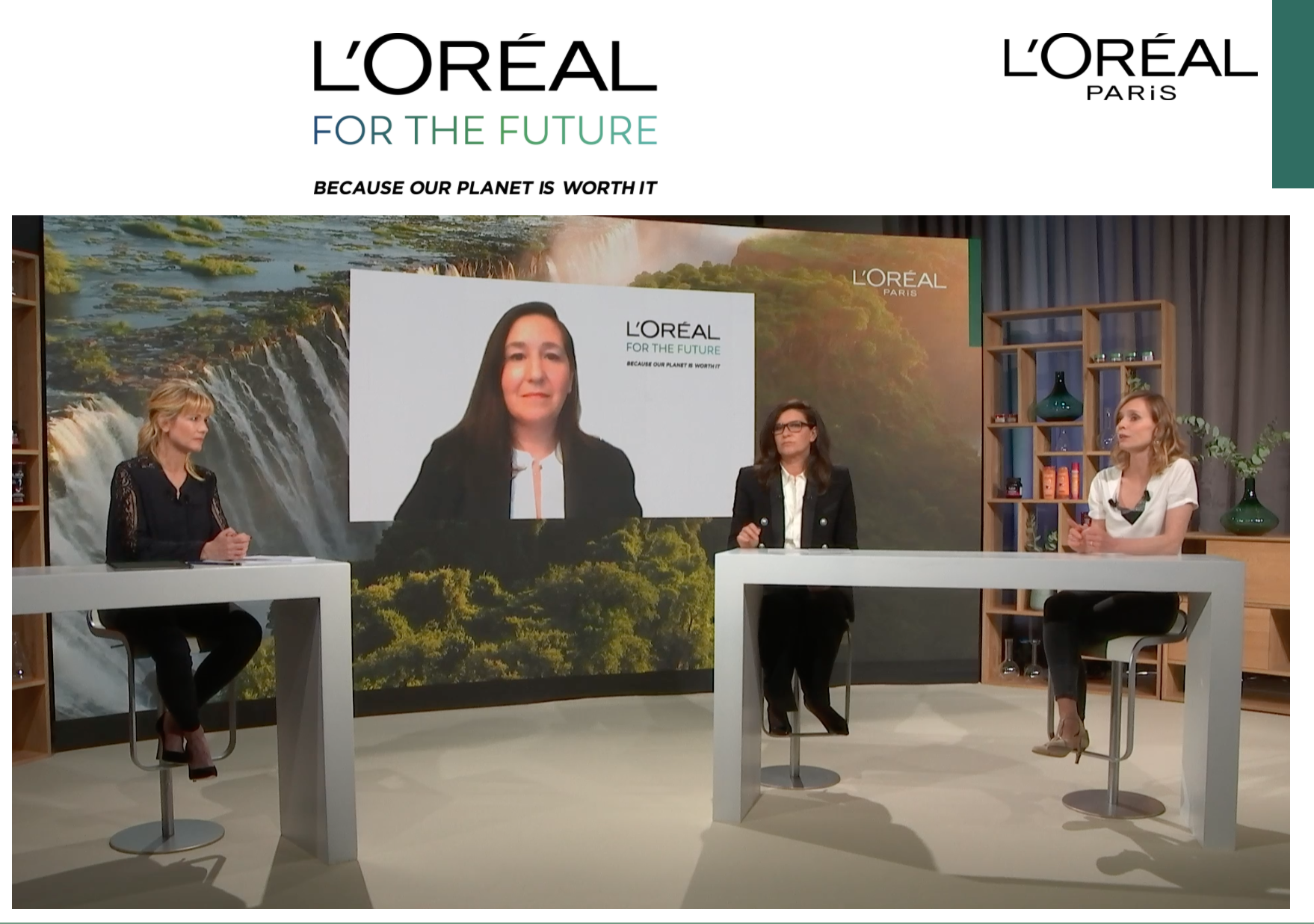
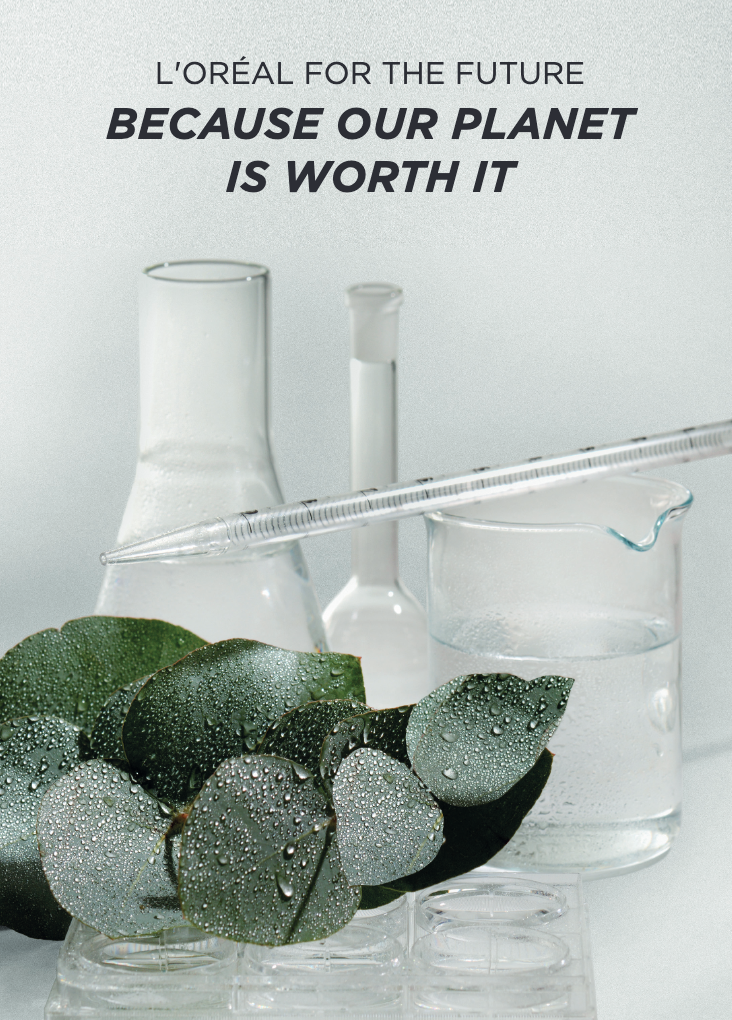
L’Oréal Paris has revealed its ‘L’Oréal for the Future, Because the Planet is Worth It’ ethical and environmental sustainability roadmap. The accelerated programme — aligned with L’Oréal Group’s wider sustainability campaign — outlines the brand’s ambitious 2030 goals.
By that point, L’Oréal Paris has committed to reducing the carbon footprint of every finished product by -50%. It has also pledged €10 million to a number of environmental projects with a focus on supporting women’s organisations and communities.
“Now is the time to accelerate sustainable innovation, to make the shift to a circular economy and to reduce the impact of our products,” commented L’Oréal Paris Global Brand President Delphine Viguier-Hovasse.
“We are not starting from scratch. Between 2005 and 2020, our factories and distribution centres have already reduced CO2 emissions by -82%, water consumption by -44%, and waste generation by -35%.
“There is still much work to be done but we will remain strong in our resolve to make a difference and play our part in this race against climate change. As the number-one beauty brand in the world, we have a duty to change the codes of beauty to adopt a more sustainable approach and to empower our consumers to achieve responsible consumption.”
Shifting to Circular Economy Packaging
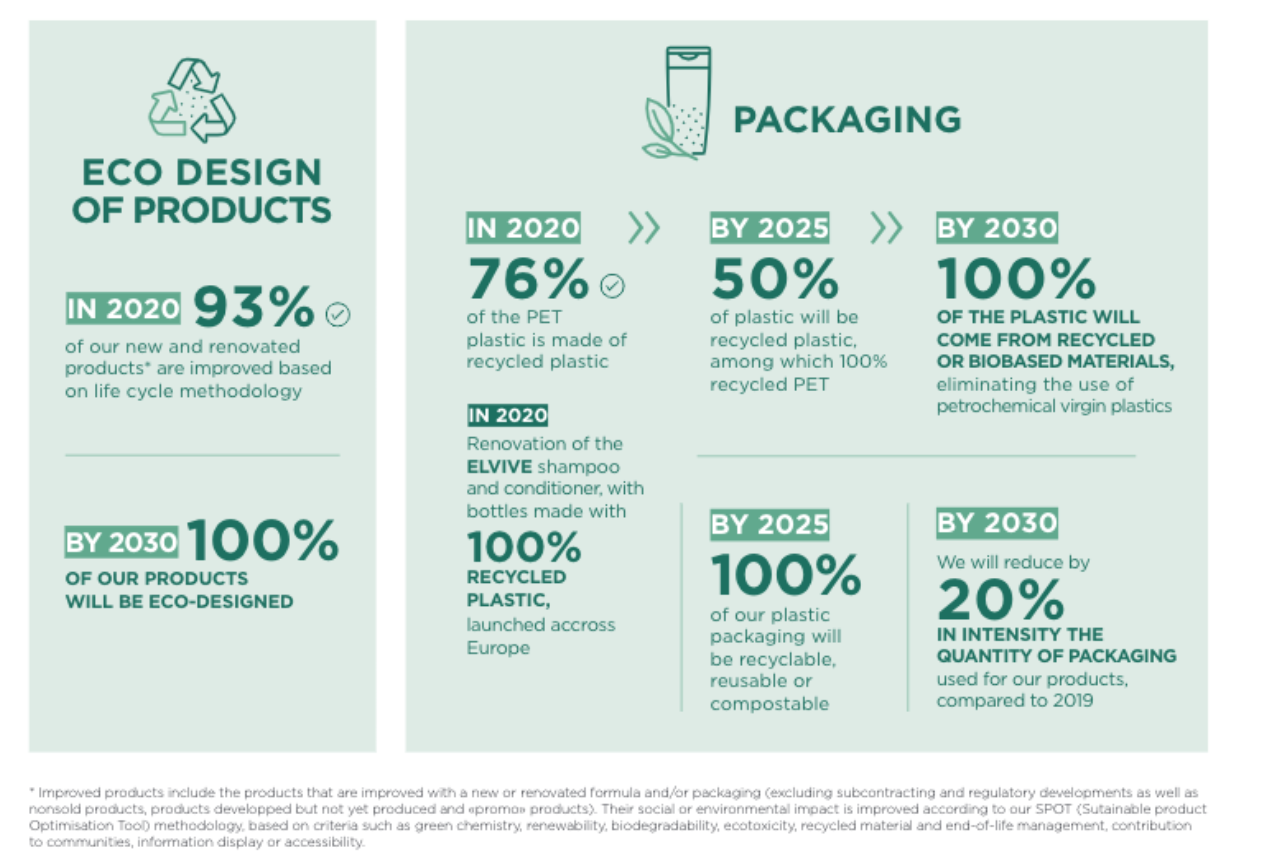
L’Oréal Paris is reducing the weight of its products to conserve natural resources and reduce its carbon footprint. The brand has lowered the weight of the aluminium used in its L’Oréal Paris Men Expert Carbon Project Aerosol range by -5.1 grams per bottle, a move which saves 135 tonnes of aluminium per year.
It has also reduced the weight of the Revitalift Jar by 11 grams, saving 434 tonnes of glass annually; and reduced the packaging weights of its hair colour products. By 2030, L’Oréal Paris aims to reduce the intensity and quantity of all packaging by -20%, which in turn will also reduce carbon emissions in transportation.
“It’s not a trade-off between sustainability and performance. Sustainability is always on top of that and never degrades the performance of a product. These is no compensation. Customers shouldn’t have to suffer for sustainability.” — L’Oréal Paris Global Brand President Delphine Viguier-Hovasse.
The brand is also working to shift to circular economy materials by optimising packaging recyclability, conserving resources and preventing plastic pollution. It aims to shift to 100% recycled or biobased plastics by 2030.
Since 2020, the company has worked to shift to 100% recycled PET plastic for all Elvive hair care range shampoo and conditioner bottles in Europe.

L’Oréal Paris is also encouraging customers to seek alternatives to single-use plastics. The brand is joining the LOOP initiative and trialling new types of durable packaging. The brand’s new shampoo and conditioner packaging will be made in aluminium, sold with a deposit online, and be returned for cleaning and refill purposes.
Commenting on how L’Oréal Paris’ sustainable transformation can help encourage conscious consumerism consumer habits, Viguier-Hovasse said: “It’s not a trade-off between sustainability and performance. Sustainability is always on top of that and never degrades the performance of a product. These is no compensation. Customers shouldn’t have to suffer for sustainability.
“We’ve started selling pouches for example, which economically have bigger volumes so customers can save money and also be more sustainable. Some products will be more expensive, but at the end of the day, it is the consumer that decides what the price of your product will be.”
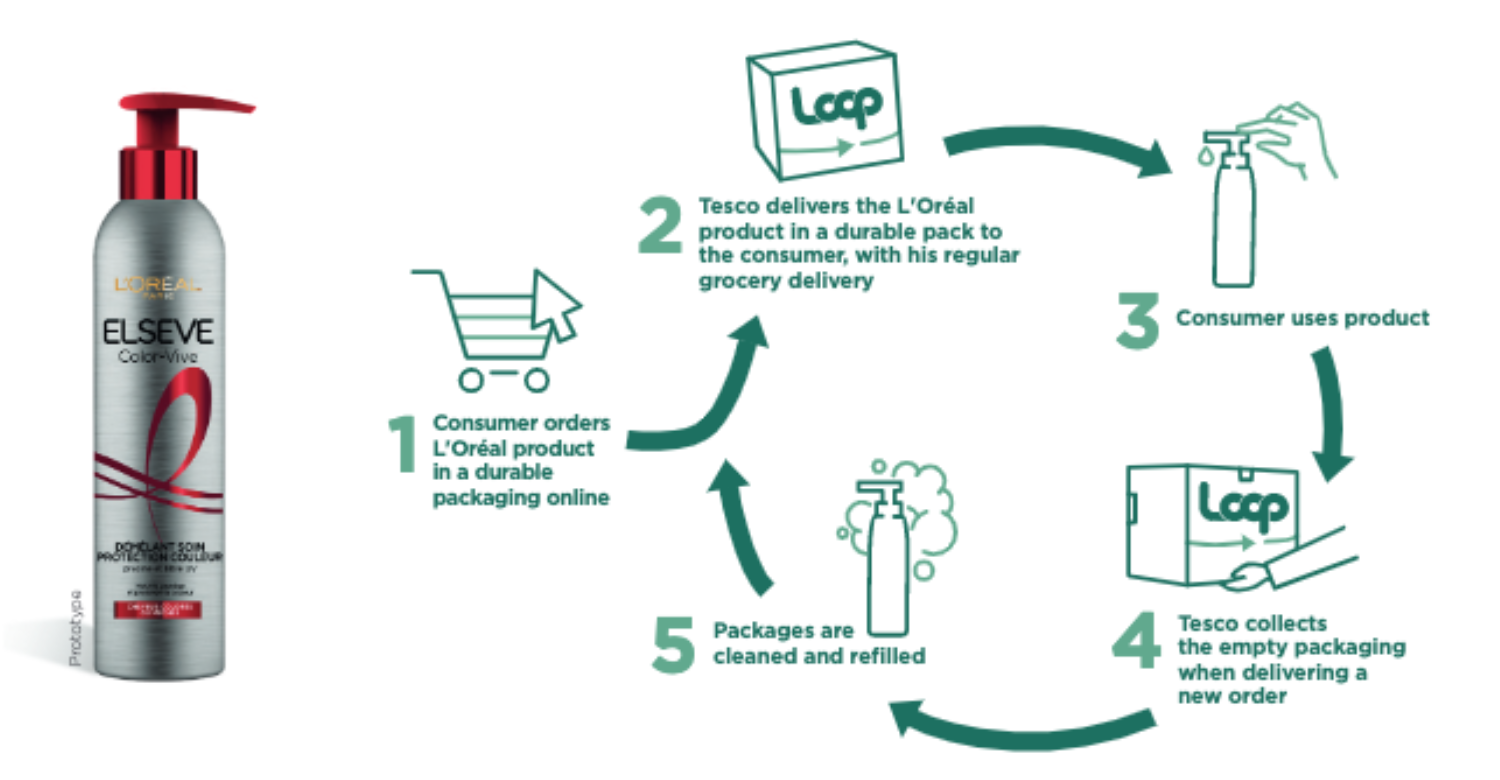
Enhancing formulas with natural-origin ingredients
L’Oréal Paris is also improving the biodegradability of all product formulas and reducing water footprint. The Elvive Full Resist Power Mask and L’Oréal Paris Men Expert Shaving Barber Club Crème de Rasage were made with formulas exceeding 97% and 94% biodegradability respectively.
Water waste currently represents 50% of the CO2 footprint for L’Oréal Paris and so the brand is exploring alternative formulas and beauty routines that require less water-rinsing steps.
Towards more sustainable production
L’Oréal Paris is also reducing carbon emissions, water consumption and waste generation across its production chain. From 2005 and 2020, L’Oréal Paris’ factories and distribution centres have successfully reduced CO2 emissions by -82%, water consumption by -44% and waste generation by -35%.
11 of L’Oréal Paris’ 26 factories are already carbon neutral and use 100% renewable energy without offsetting. The remaining 15 will follow by 2025, said the brand.
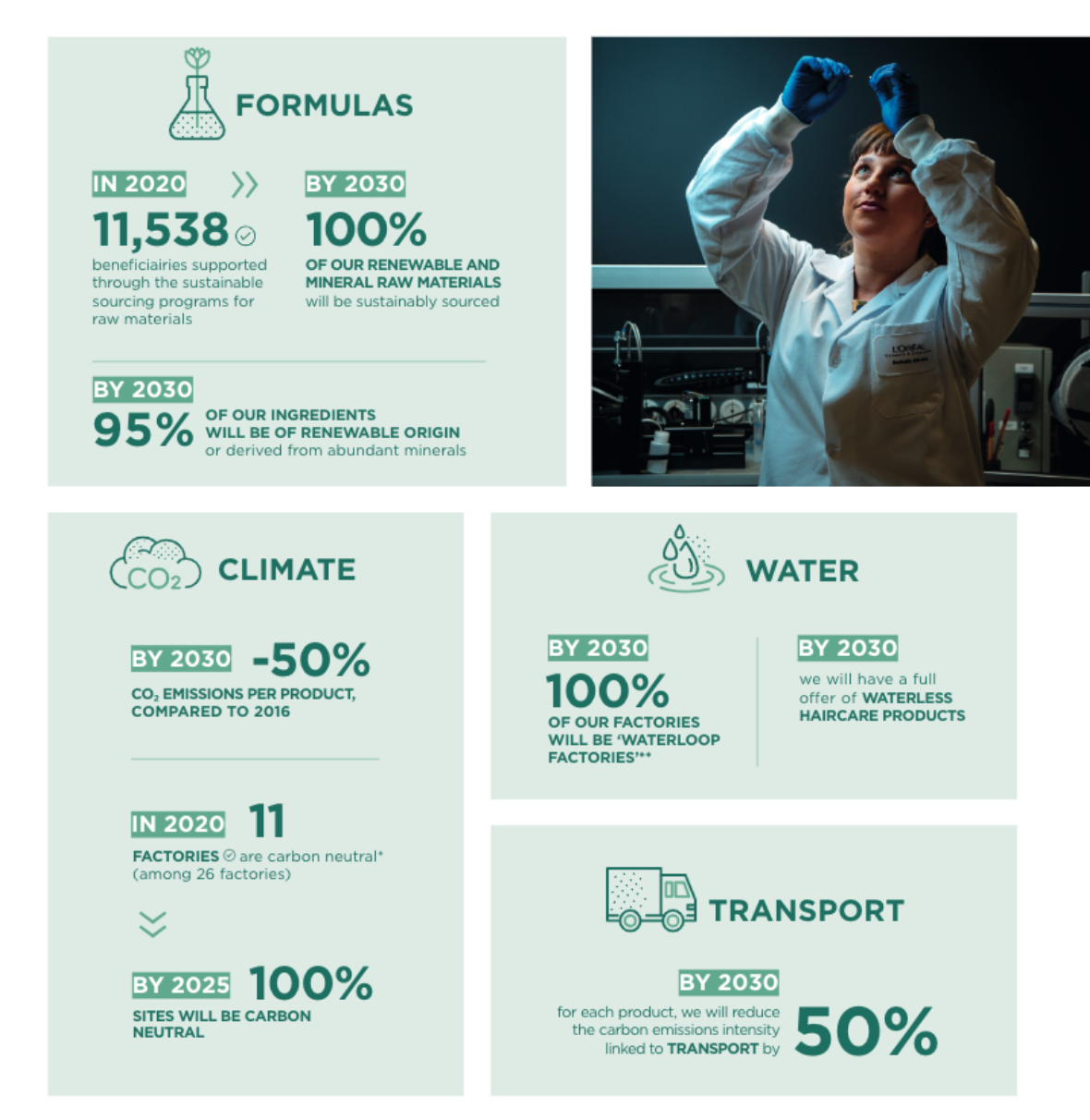
Empowering women
L’Oréal Paris is investing €10 million in six different carbon projects benefitting women communities around the world. In addition to the funds, L’Oréal Paris is also developing specific programmes that empower women in leadership positions. The brand is also supporting a cooperative of women in Honduras, by offering courses on leadership, financial independence and women’s health.
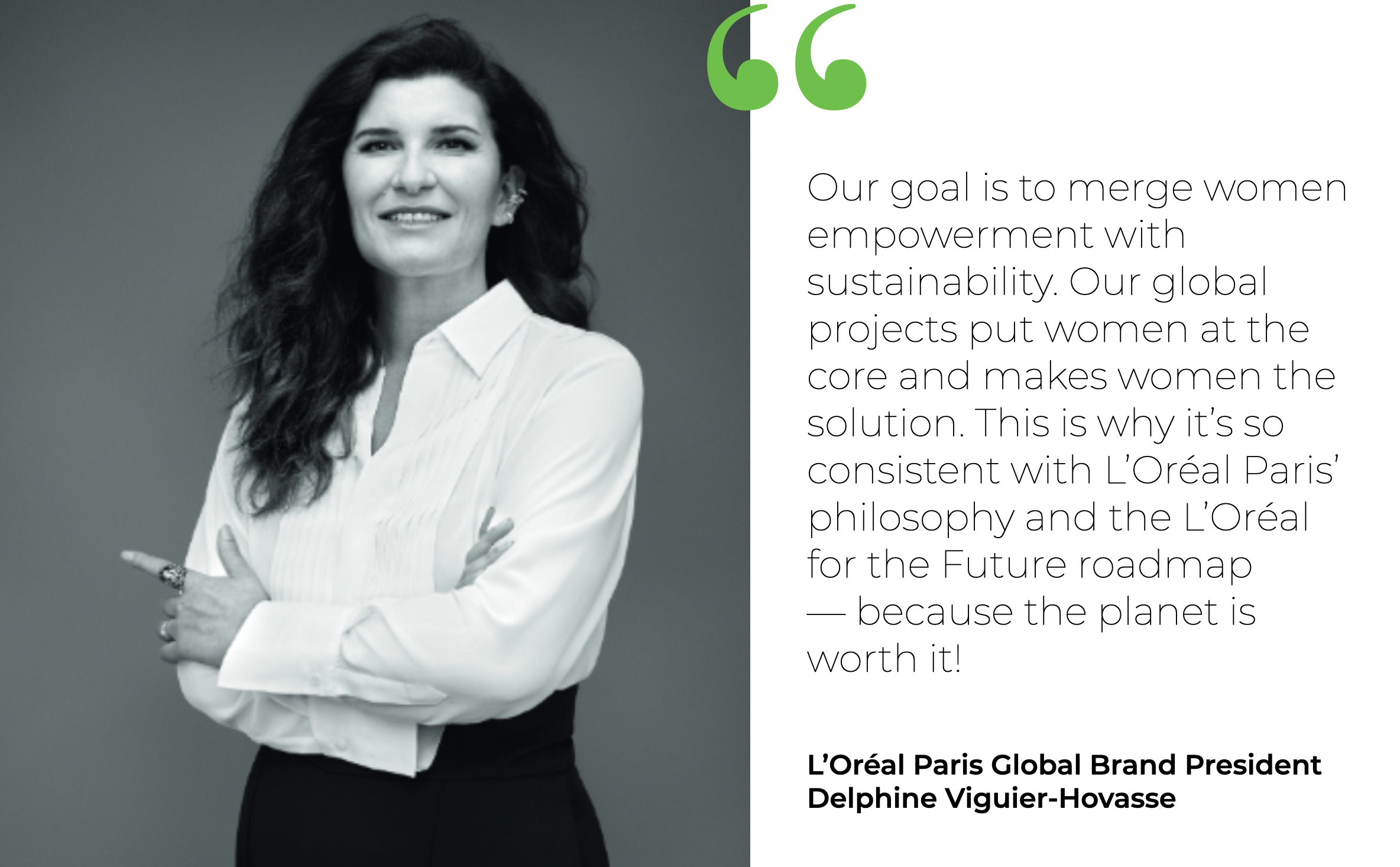
Commenting on L’Oréal Paris enhanced focus on women’s organisations and issues, Viguier-Hovasse said: “Women are 14 times more likely to die due to climate disasters. During a climate disaster, millions of people are displaced into camps and women are more exposed to violence and sexual aggression.
“Our goal is to merge women empowerment with sustainability. Our global projects put women at the core and makes women the solution. This is why it’s so consistent with L’Oréal Paris’ philosophy and the L’Oréal for the Future roadmap — because the planet is worth it!”










